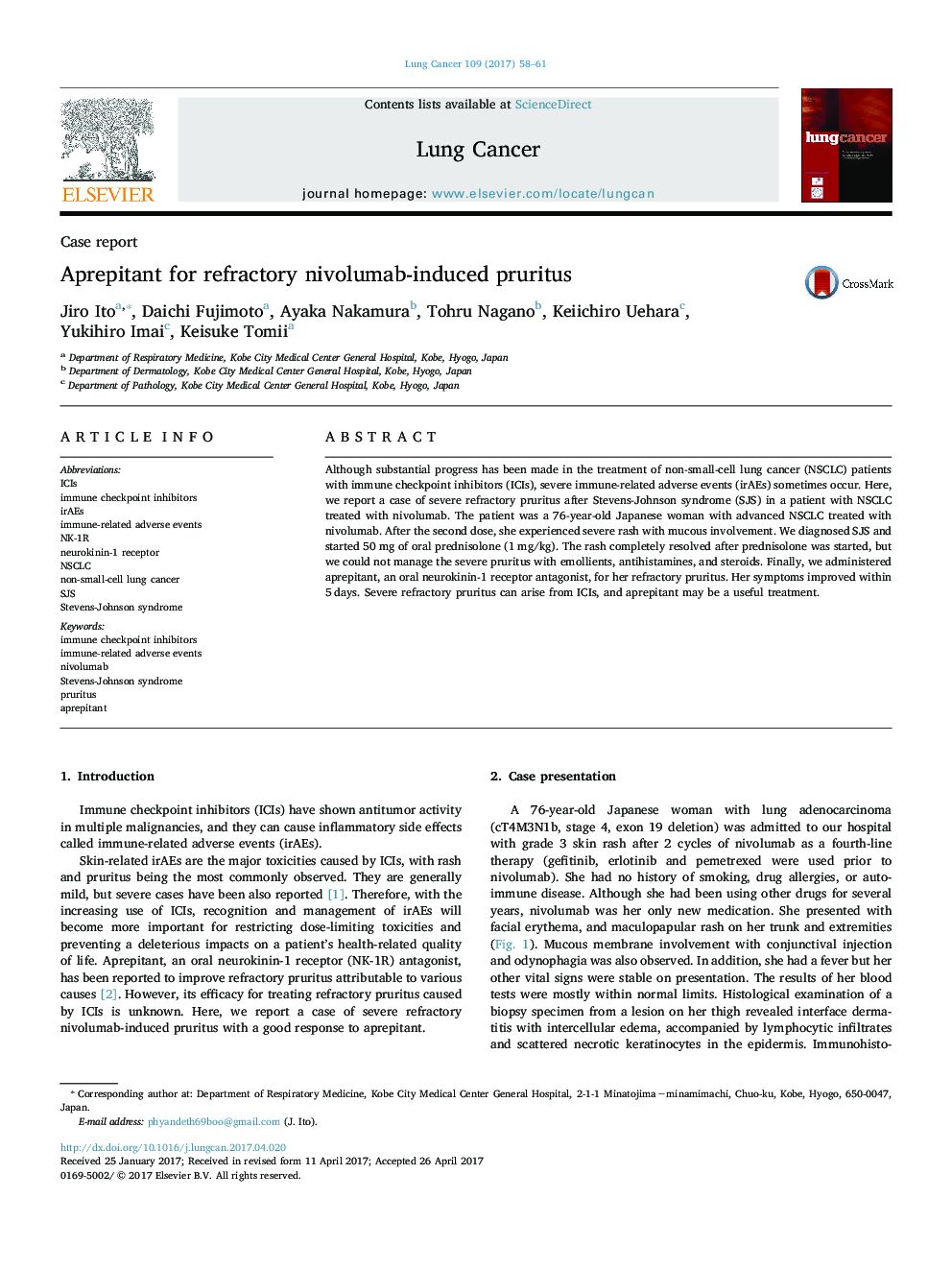| Article ID | Journal | Published Year | Pages | File Type |
|---|---|---|---|---|
| 5528138 | Lung Cancer | 2017 | 4 Pages |
â¢A NSCLC patient treated with nivolumab developed refractory pruritus after SJS.â¢We used aprepitant for refractory pruritus, resulting in complete improvement.â¢Severe skin-related irAEs from nivolumab use must be recognized and managed.â¢Aprepitant might be a useful option for refractory pruritus caused by ICIs.
Although substantial progress has been made in the treatment of non-small-cell lung cancer (NSCLC) patients with immune checkpoint inhibitors (ICIs), severe immune-related adverse events (irAEs) sometimes occur. Here, we report a case of severe refractory pruritus after Stevens-Johnson syndrome (SJS) in a patient with NSCLC treated with nivolumab. The patient was a 76-year-old Japanese woman with advanced NSCLC treated with nivolumab. After the second dose, she experienced severe rash with mucous involvement. We diagnosed SJS and started 50Â mg of oral prednisolone (1Â mg/kg). The rash completely resolved after prednisolone was started, but we could not manage the severe pruritus with emollients, antihistamines, and steroids. Finally, we administered aprepitant, an oral neurokinin-1 receptor antagonist, for her refractory pruritus. Her symptoms improved within 5Â days. Severe refractory pruritus can arise from ICIs, and aprepitant may be a useful treatment.
